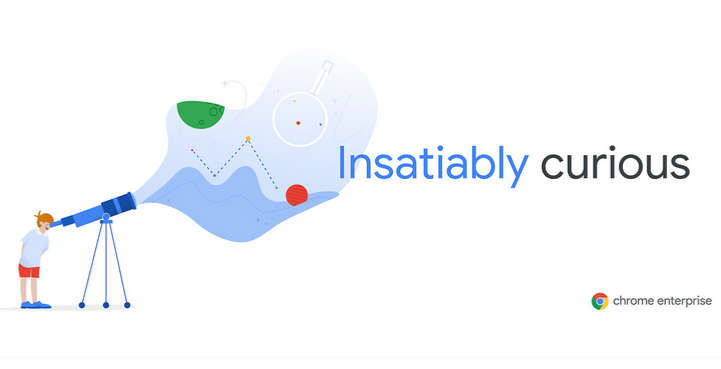| Chrome OS Runs Windows Apps - What's An OS Anyway? |
| Written by Mike James | |||
| Wednesday, 17 June 2020 | |||
|
Chrome OS started out as a good idea, not a new idea, but still a good one. Since then things have gotten a little out of hand and now it has been announced that you can run Windows apps under it. Why? How? A recent blog post by John Solomon, VP of Chrome OS, outlines some of the future for Chrome OS, but its future seems to have lost touch with its past. Consider the story... Increasingly users were spending time in the browser and nothing but the browser. The advent of web apps made it possible to run just about everything you could want without having to install anything. This approach is ideal for situations such as education where you need a set of portable machines that are configured all in the same way and which can be quickly reset if some user makes a mess - and users often do. So the idea of Chrome OS and the Chromebook was born and you could buy a low-cost portable that ran nothing but Chrome and used nothing but web apps. You didn't need a wordprocessor or a spreadsheet because you had Google Docs and you had Gmail for email and so on. But users aren't simple and they usually don't understand simplicity. Users wanted Chromebooks to run other software. Programmers also wanted Chromebooks to run other software, although really I don't know why we just didn't set to writing all of the web-based software the users wanted. As a result Chrome OS developed the ability to run Linux apps. Why not? After all it was Linux providing all of the OS services - Chrome was just the UI. So we now have Chrome OS running web apps and installed Linux apps. Next comes Android. For reasons that I don't understand, Chrome OS can now run Android apps. This too isn't surprising and Android is another "operating system" running under Linux. Android is really, mostly, just another UI component plus some services that are unique to mobile devices.
The sudden importance of home working makes the idea of remote working even more important and Chrome OS looks well placed to be good remote device, except of course now we are not talking about school and low-demand users, now we considering enterprise users with their demand for Microsoft Office and more. The solution to this is to add support for Windows apps: "For example, our new partnership with Parallels brings legacy application support—which includes Microsoft Office desktop apps—to Chromebooks. More to come on this over the coming months." Parallels has a tiny bit more information: "Seamlessly add full-featured Windows apps, including Microsoft Office, to Chromebook Enterprise devices" Digging into Parallels' technology it seems that what is planned is to use a remote application server. That is, the Windows apps don't run on the Chromebook, but on a server running Windows that you essentially remote desktop into. This is a good way to work but it isn't really bringing Windows apps to Chrome OS. There are already remote application servers that will allow you to use desktop software running on the cloud. For example, Amazon has Workspaces that it advertises as "Desktop as a service". Even Microsoft has Virtual Desktop on Azure offering its own software from the cloud. So it's a bit of a con as we are not getting Windows on Chrome OS in the same sense as Linux or Android are on Chrome OS. However, if you want to use apps that live in the cloud it is a better way of doing things. But it does make you ask the question of why Google can't provide this service itself? It also raises the issue of what an operating system is? OK, it is a collection of services that we use to talk to the hardware. It's an API that connects your application to the hardware. At the moment we have Linux, Windows and Apple's iOS and macOS, both of which are proprietary versions of Linux. Android is built on Linux and so is Chrome OS. It seems to be a law of nature that operating systems start out tying to make themselves different and running different applications, but over time they move together so that everything runs everything. Linux has Wine, Windows has the Windows Subsystem for Linux and so it goes on. It makes you think that what we need is just one uniform API that we can all write our applications to and some sort of adapter to the OS that just lets it run ... oh wait a minute I think I just reinvented the JVM.
More InformationThe future of computing showed up early Parallels and Google Partner to Bring Enterprises Full-Featured Windows Applications to Chrome Enterprise Related ArticlesChrome OS - Now A Real Alternative? Linux On Chromebooks Now Official Google Android Apps On Chrome Is Open To Everyone Chrome Web store - another way to sell widgets To be informed about new articles on I Programmer, sign up for our weekly newsletter, subscribe to the RSS feed and follow us on Twitter, Facebook or Linkedin.
Comments
or email your comment to: comments@i-programmer.info
|
|||
| Last Updated ( Wednesday, 17 June 2020 ) |



